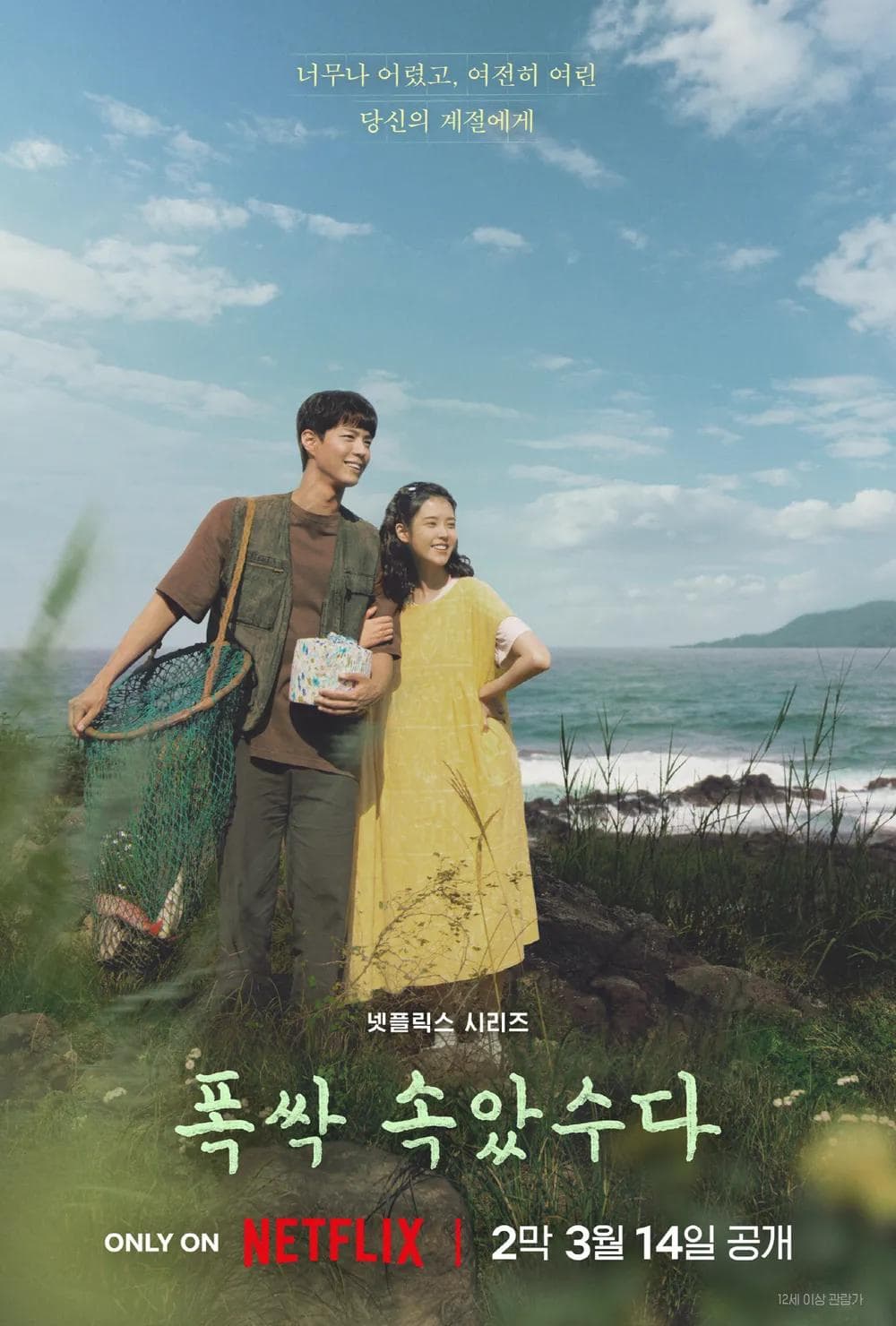The Korean title of the drama 'When Life Gives You Tangerines' is unfamiliar even to most Koreans.
This has sparked curiosity among Korean viewers. Let's explore what the Korean title means and how it connects to the charm of this K-drama.

This post was written by a Korean with the help of AI. There may be translation errors, so I appreciate your understanding.
1. What is the story of 'When Life Gives You Tangerines'?
'When Life Gives You Tangerines' is set on Jeju Island, a beautiful island in South Korea. The drama follows a strong and smart girl named Aesun (played by IU) and a hardworking and devoted boy named Gwansik (played by Park Bo-gum).
Their story is about meeting each other, falling in love, and building their life together.
The drama spans a long period, from the 1950s to the present. Through the ups and downs of their lives, the show beautifully portrays Jeju’s unique culture, customs, stunning scenery, and historical background.
2. Why is the English title 'When Life Gives You Tangerines'?
As you may have guessed, the English title is inspired by the famous American saying:
"When life gives you lemons, make lemonade."
Since the drama takes place in Jeju, the title uses tangerines, which are the island’s most famous fruit.
This title conveys a message:
"Even when life is tough, stay positive and turn challenges into opportunities."
It also makes the drama more familiar and appealing to global audiences while keeping a unique Korean touch.
3. What is the original Korean title of When Life Gives You Tangerines?
The original Korean title of this K-drama is '폭싹 속았수다 (Pokssak Sokassuda)'. This phrase is commonly used in Jeju, an island at the southernmost part of Korea, and it means "You’ve worked really hard" or "You’ve been through a lot."

The Jeju dialect is quite different from standard Korean, and many Koreans outside Jeju have difficulty understanding it. In this phrase, "폭싹 (pokssak)" means "completely" or "entirely", and "속았수다 (sokassuda)" means "to work hard" or "to struggle".
Choosing this title emphasizes the struggles and sacrifices of the main characters, Aesun and Gwansik. It also reflects the deep respect for their dedication and hard work in life.
4. Strategic differences between the Korean and English titles
The Korean title uses the Jeju dialect to highlight local emotions and depth, while the English title feels witty and easy to understand for international viewers.
By replacing lemon with tangerine, a signature fruit of Jeju, the English title maintains familiarity while incorporating Jeju’s unique culture.
This reflects the different emotional approaches of the two cultures and helps the drama appeal to a worldwide audience.
Conclusion
Both 'When Life Gives You Tangerines' and 'Pokssak Sokassuda' capture the essence of this drama beautifully. The Korean title connects deeply with local culture, while the English title makes it accessible to a global audience.
The main characters have not yet spoken the Korean title in the drama. I cautiously predict that they might say it in the final episode.
Which title do you think represents the drama better?
The Veiled Creator of ‘When Life Gives You Tangerines’
The Veiled Creator of ‘When Life Gives You Tangerines’
With the rising popularity of the Netflix original series When Life Gives You Tangerines, there's one name that sparks as much curiosity as the story’s ending itself—the screenwriter who brought it to life, a mysterious figure known as Lim Sang-choon.
m00nlight24.com
🌐 This post is also available in Korean: 한국어 보기
#pokssak sokassuda #폭싹속았수다 #WhenLifeGivesYouTangerines #KoreanTitle #Kdrama #JejuDrama #KoreanDrama
'K-CONTENT (Multi-language) > 01. ENG - K-Content' 카테고리의 다른 글
| Is BTS’ First Comeback Concert Going to Be Free? (0) | 2026.01.20 |
|---|---|
| Can This Love Be Translated? Netflix K-Drama Cast & Early Story (1) | 2026.01.16 |
| Dear Hongrang: the Original Novel and Book Trailer (0) | 2025.05.11 |
| The Veiled Creator of ‘When Life Gives You Tangerines’ (0) | 2025.03.29 |
| NewJeans' Independent Activities Prohibited (0) | 2025.03.21 |



